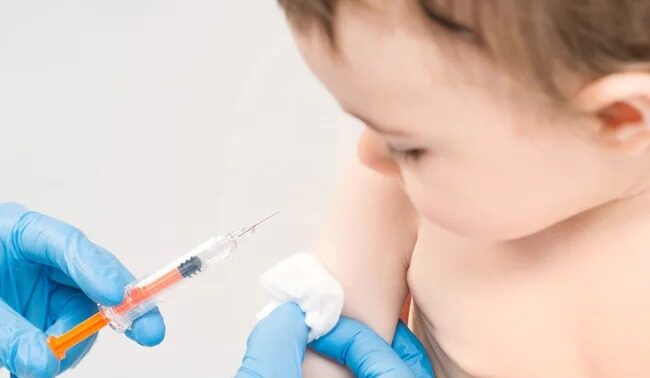| Translate This News In |
|---|
According to the United Nations, the Covid-19 pandemic-related lockdowns and health service interruptions resulted in the partial or complete missed of 67 million children’s routine vaccinations worldwide between 2019 and 2021.
A recent research by UNICEF, the organisation of the United Nations that works to protect children, claims that “more than a decade of hard-earned gains in routine childhood immunisation have been eroded” and that “getting back on track” “will be challenging.”
48 million of the 67 million children who had their routine immunisations “severely disrupted” missed out entirely, according to UNICEF, raising concerns about possible polio and measles epidemics.
Children’s vaccination rates dropped in 112 nations, and the global vaccination rate fell 5 points to 81 percent, marking a level not seen since 2008. South Asia and Africa were particularly heavily struck.
As the report noted, “concerningly, the backsliding during the pandemic occurred at the end of a decade when, in general, growth in childhood immunisation had stagnated.”
Each year, vaccines save 4.4 million lives, and the UN estimates that number may rise to 5.8 million by 2030 if its lofty goals to leave “no one behind” are achieved.
According to the report’s editor in chief, Brian Keeley, vaccines have been very beneficial in enabling more youngsters to lead healthy, extended lives. “Any drop in vaccination rates is concerning.”
Prior to the invention of a vaccine in 1963, measles claimed the lives of about 2.6 million people annually, the majority of whom were children. That figure dropped to 128,000 by 2021.
However, the proportion of children who received the measles vaccine dropped from 86% to 81 % between 2019 and 2021, and the number of cases quadrupled in 2022 compared to 2021.
decreasing faith in vaccines
Keeley cautioned that other problems, such as climate change and food instability, might make the decline in immunisation rates worse.
He cited an increase in hostilities, economic stagnation in many nations, climatic emergencies, and other issues. The need for vaccinations is being more difficult for countries and health systems to meet.
Governments were urged by UNICEF to “double down on their commitment to increase financing for immunisation,” with a focus on stepping up “catch-up” vaccination efforts for people who had missed their injections.
In 52 of the 55 nations examined, there has been a decline in people’s faith in vaccines, which is cause for concern according to the report.
In a statement, Catherine Russell, executive director of UNICEF, stated, “We cannot allow trust in routine immunisations to become another victim of the pandemic. If this doesn’t happen, additional children who have diphtheria, measles, or other diseases that can be avoided could die in the upcoming wave of mortality.
According to the paper, vaccine confidence can be “volatile and period specific,” and “additional analysis will be required to assess if the findings are indicative of a longer-term trend” beyond the epidemic,” it was noted.
It stated that overall, support for vaccines “remains relatively strong.”
More than 80% of those surveyed in 50 of the 55 countries “perceived vaccines as important for children.”
It is reasonable to have some optimism that services are improving in a number of nations, according to Keeley, who also noted that early immunisation data from 2022 indicated positive trends.
However, he added, even bringing numbers back to their pre-pandemic levels would take years, let alone finding “the children who were missing before the pandemic.”
And they constitute a sizable number.


















